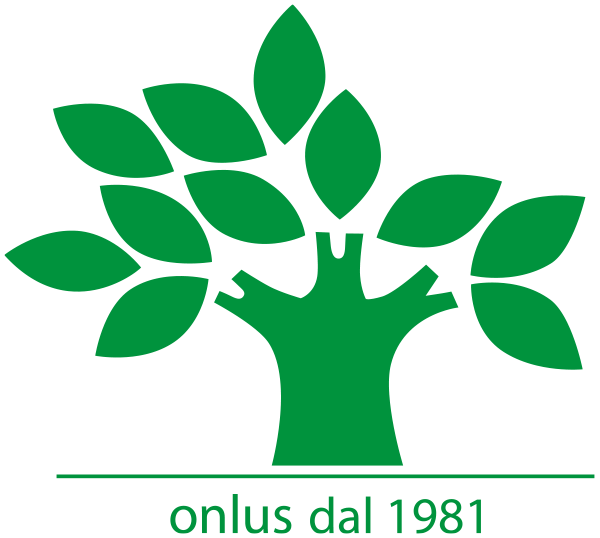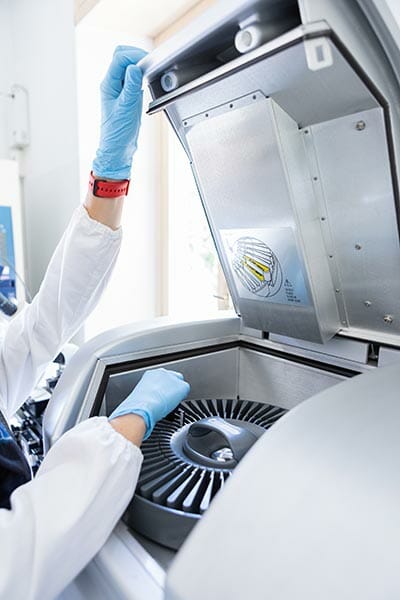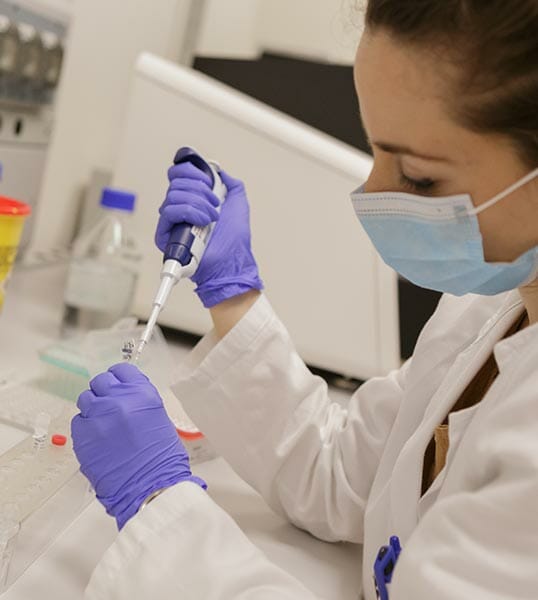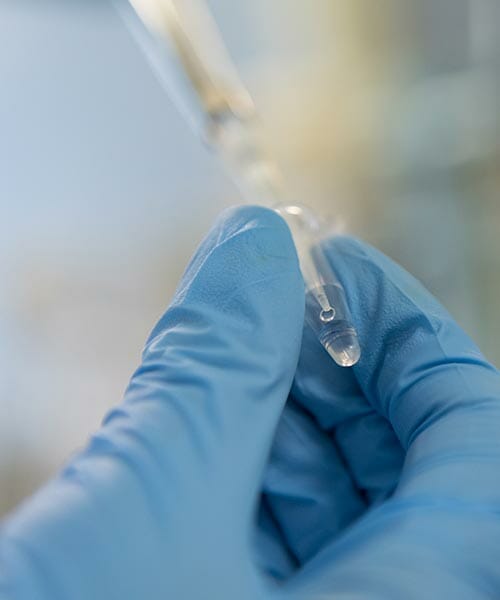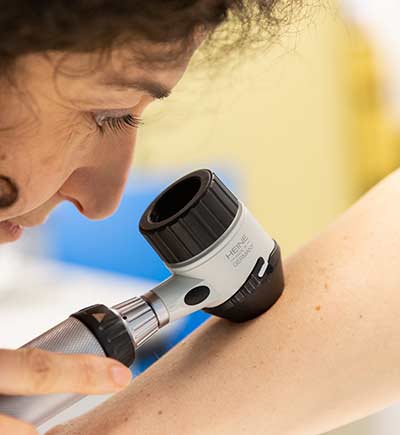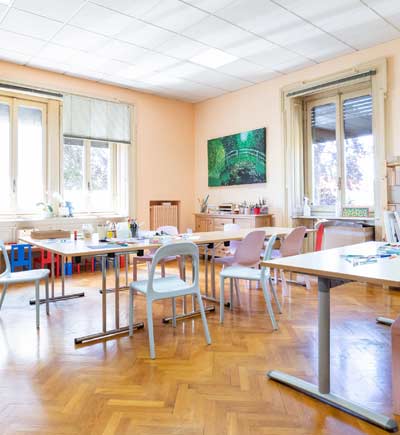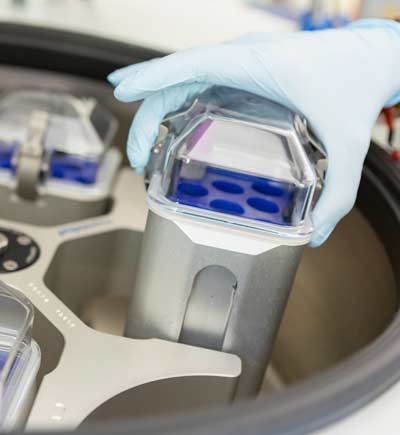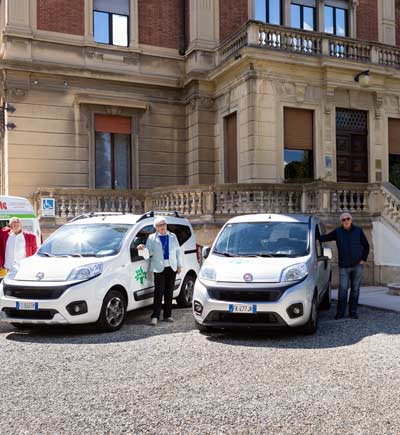Laboratorio di genomica
Inside the lab
In 1981 Elvo Tempia created Fondo Edo Tempia, a non lucrative, private, autonomous, independent, apolitic charity, in order to fulfil a special desire of his son Edo, prematurely dead for melanoma.
In 2005 Fondazione Edo ed Elvo Tempia was created to support the activity of Fondo Edo Tempia and to develop cancer research, prevention and care programs, prolonging the commitment of Elvo Tempia who died in 2004.
Fondazione Edo ed Elvo Tempia activities
The Foundation staff is composed by volunteers, nurses, medical doctors, epidemiologists and scientists. Fondazione Edo ed Elvo Tempia works in an integrated and synergistic way in collaboration with the Piedmont healthcare institutions and universities, as well as with other important national and international research centres, in order to contribute to the improvement of the quality of care and life of cancer patients and their families, through the promotion and implementation of prevention, screening, assistance, treatment and research projects and programmes. Cancer research was the first commitment of Fondazione Edo ed Elvo Tempia, with the enhancement of the activities of the cancer genomics laboratory, inaugurated in 2001. In 2011 Fondazione Edo ed Elvo Tempia created the laboratory of molecular oncology, committed to cancer diagnostics and research in collaboration with the hospitals of the Piedmont healthcare system.
The first Italian Cancer Registry and pioneer prevention studies that have become official regional screenings were launched by Fondo Edo Tempia and are now managed by the Foundation in cooperation with the Local Health Service.
The laboratory
The Laboratory of Cancer Genomics was inaugurated in 2001 and its main purpose is to study the molecular alterations in tumor tissues and/or liquid biopsies by means of high-throughput genomic and transcriptomic profiling.
The laboratory has established many scientific collaborations with international and italian research institutes, universities and hospitals. Students can attend the laboratory for educational internships, bachelor and master degree trainees, as well as PhDs or specialization programs.
The lab team is multidisciplinary, with mathematicians, biologists, biotechnologists, bioinformaticians. You can find here the list of publications including our lab.
Research activity
The main projects of the cancer genomics laboratory are focused on the characterization of tumors by a molecular point of view; this information is suitable for the selection of biomarkers able to predict tumor aggressiveness, responsiveness to anti-tumor therapies (radio-, chemo-, and target-therapies), both in neo-adjuvant (before surgery) and in adjuvant (after surgery) settings. Molecular profiles of cell cultures treated with different agents or of patients’ xenografts are also analyzed in the lab, as well as liquid biopsies to detect and validate circulating biomarkers for early cancer diagnosis. Third parties services (sample processing and/or bioinformatics data analysis) are offered to external laboratories.
Ongoing research projects
Prostate cancer
Ongoing
DP3 Early detection and prognosis of prostate cancer: an integrated model of biology and technology (Fondazione Edo ed Elvo Tempia is the promoter of the project, in collaboration with Asl Biella, Molinette Hospital and Iigm Torino)
Plasma Physical activity and sphingolipid metabolism for prostate cancer prevention
Nodes To develop a digital platform with an easy-to-use interface for pathologists, improving the accuracy of diagnosis and reducing the waiting times for patients, integrating genomic/molecular data, in collaboration with Aequip, Aethia and the Pathology Units of Biella and Molinette Hospital Torino
Concluded
Prediction of neuroendocrine transdifferentiation in prostate cancer
Meta-PSA Circulating metabolites in plasma in combination with PSA to detect prostate cancer with higher accuracy
The role of a clinical decision support system based on biparametric MRI and microRNA for prostate cancer diagnosis (with Ircss Candiolo)
Breast cancer
Andromeda Personalization of mammographic screening in collaboration with Cpo-Torino
Confluence Partner in an international consortium with the aim of defining a polygenic risk score to predict the predisposition of developing breast cancer
3Tx3N Classification of triple negative breast cancer, in collaboration with Gemelli Hospital of Rome
Gene expression profiling of breast cancer in Morocco women (with Casablanca University)
Colorectal cancer
Biofit Screening personalization for colorectal cancer, in collaboration with Cpo Torino
Melanoma
Mactrem Sex-specific prognostic biomarkers in stage I-II melanoma, in collaboration with Asl Biella
Pseudomyxoma Peritonei
Pmp Building a European Multicentric Cohort to Accelerate New Therapeutic Perspectives on Pseudomyxoma Peritonei
Cancers resistant to conventional therapies
Torak AKR1C3, a new therapeutic target for tumors resistant to conventional therapies, coordinated by Department of Drug Science and Technology of University of Turin.
Autism
Sirio Multicentric study on microRNA and Autism
Respiratory Infections
Silk SARS-CoV-2 and more: to lead up to the clinic a pan-coronavirus antiviral drug (with University of Turin and the start-up Drug Discovery and Clinic srl-DDC)
Marie Skłodowska-Curie Actions (Msca) Innovative Training Network (Itn)
Analysis of circulating biomarkers for minimally invasive early detection of Breast Cancer (Bc)
Analysis of circulating biomarkers for early detection of melanoma recurrence
Data Analysis Activity
Lung cancer Exosome microRNA profiling on plasma from patients treated with Nivolumab, in collaboration with San Martino Hospital, Genova
Colorectal cancer DNA/RNA-seq & ChIP-seq data analysis, in collaboration with University of Lausanne, IRFMN Milano and Istituto Regina Elena Roma
Squamous cell carcinoma and melanoma RNA-seq & ChIP-seq data analysis in collaboration with University of Lausanne and Int Milano
Ovarian and pancreatic cancer RNA-seq & gene expression profiling data analysis, in collaboration with Institute of pharmacological research Mario Negri Milano
Cholangiocarcinoma RNA-seq data analysis in collaboration with University of Firenze
Oropharynx and Rhinopharynx cancer Gene expression and shallow whole genome sequencing data analysis on collaboration with Int Milano
Equipment and analysis
The Agilent platform is used for high throughput analyses, such as gene expression, long non coding RNA (lncRNA) and miRNA profiling, amplification/deletion analyses by comparative genomic hybridization (aCGH), copy number variations (CNV), small nucleotides polymorphisms (SNPs), DNA methylation and transcription binding sites analysis by chromatin immunoprecipitation arrays.
A Next Generation Sequencer is shared with the Molecular Oncology Laboratory and used to perform deep sequencing.
Experimental procedures and data analysis are performed inhouse. Library preparation is also carried out for studies that require higher throughput, with sequencing performed with external collaborators and data analysis by our team. All the instruments needed for RT-qPCR analyses of nucleic acids on both tissues and plasma samples is available as well as a tissue arrayer.
Contacts
Head of Laboratory:
Dr.ssa Giovanna Chiorino – https://orcid.org/0000-0002-9502-6400
giovanna.chiorino@fondazionetempia.org
tel. +39 015 351830
fax +39 015 21116
mobile: +39 3475899751
